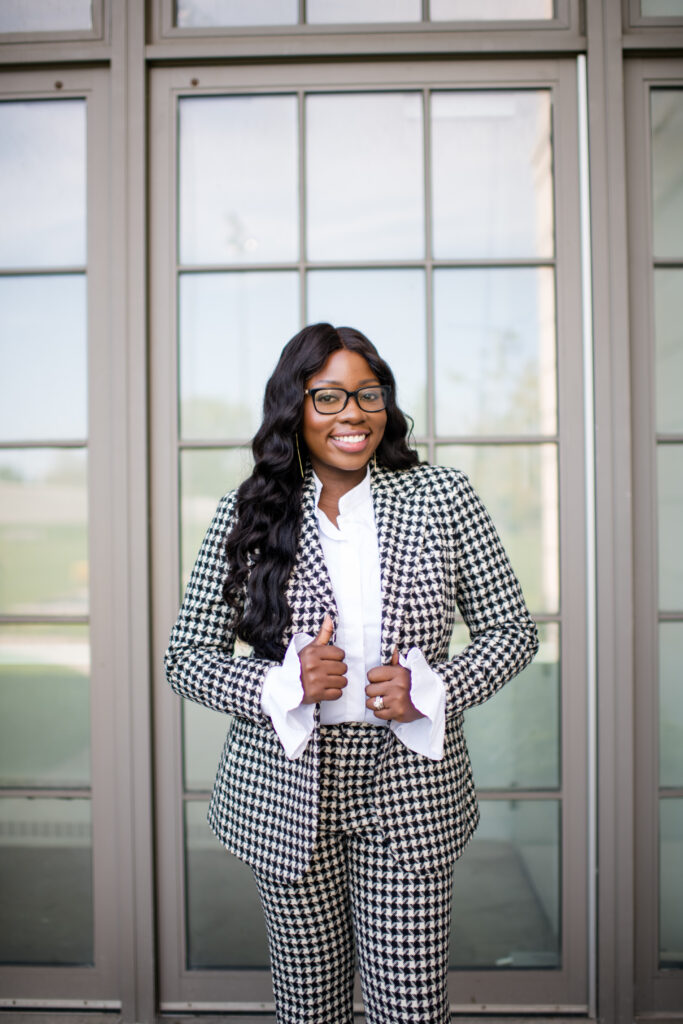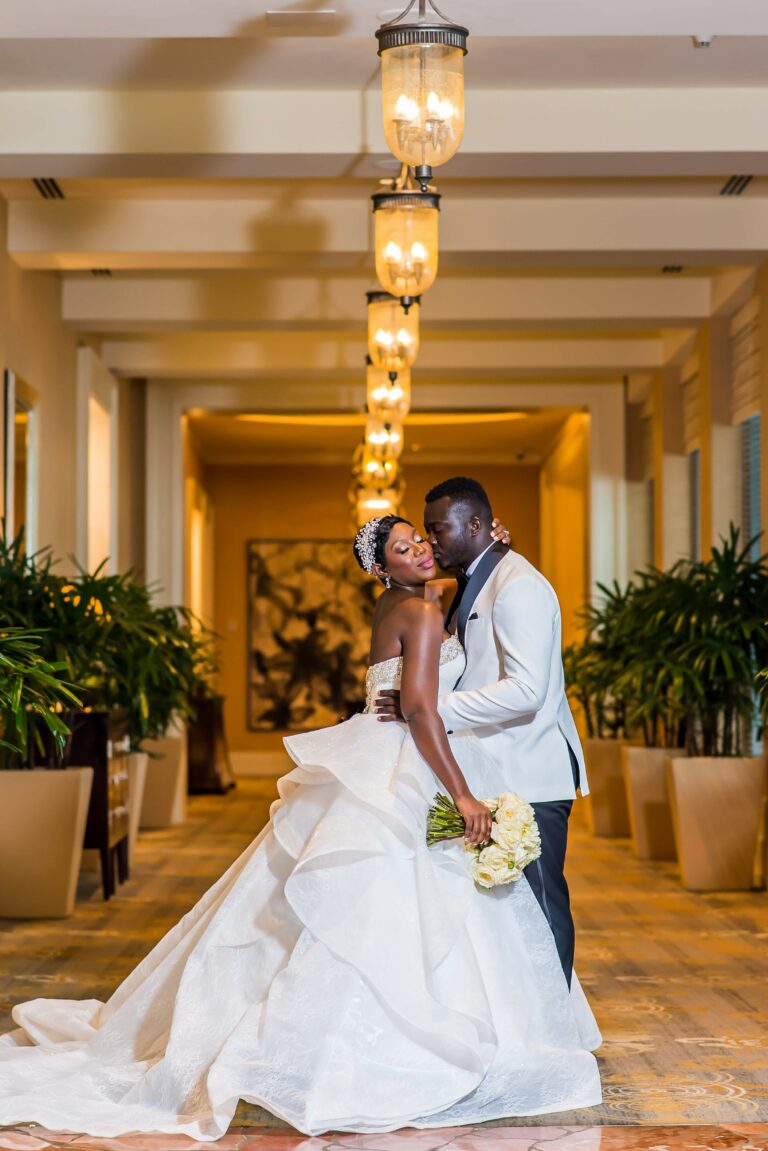
Embarking on the journey of planning a traditional Nigerian wedding as well as an American wedding brings forth the ultimate question — should it unfold as a single day event or be savored over two distinct days? This guide is your compass in navigating this decision, delving into the intricacies of each option which will help you seamlessly blend Nigerian traditions with an American celebration.
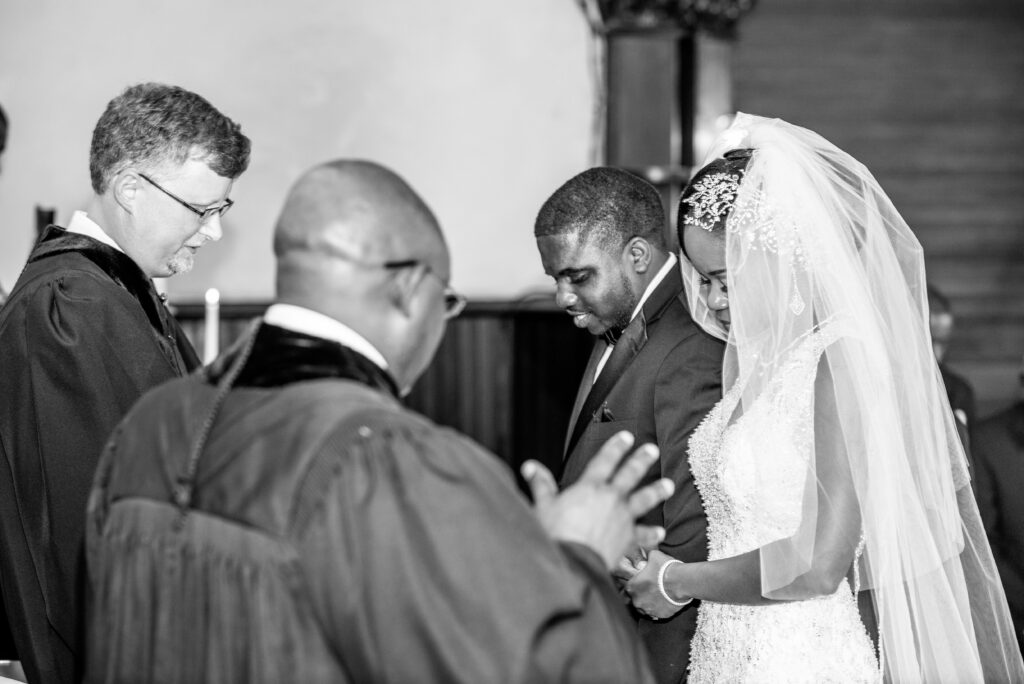
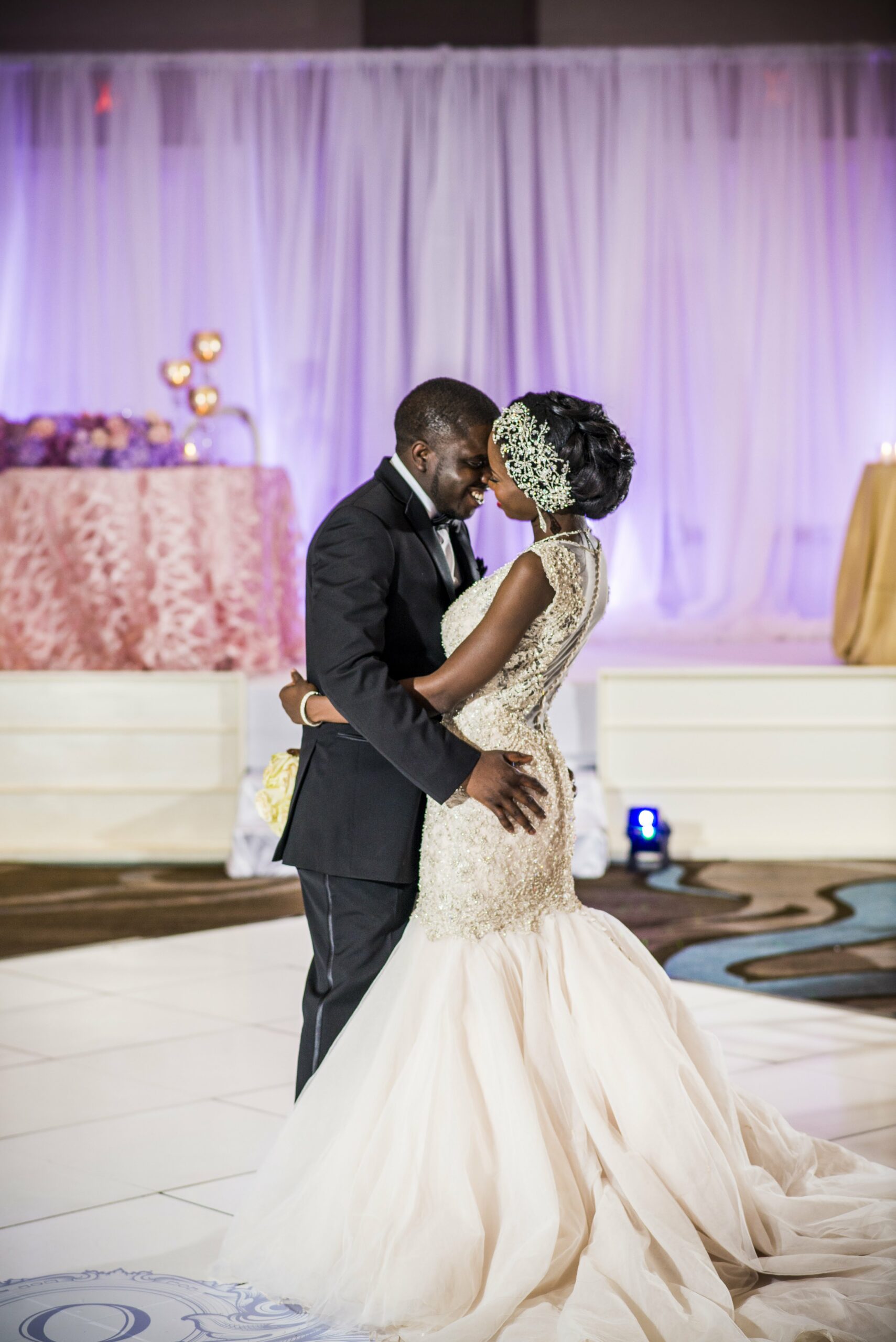
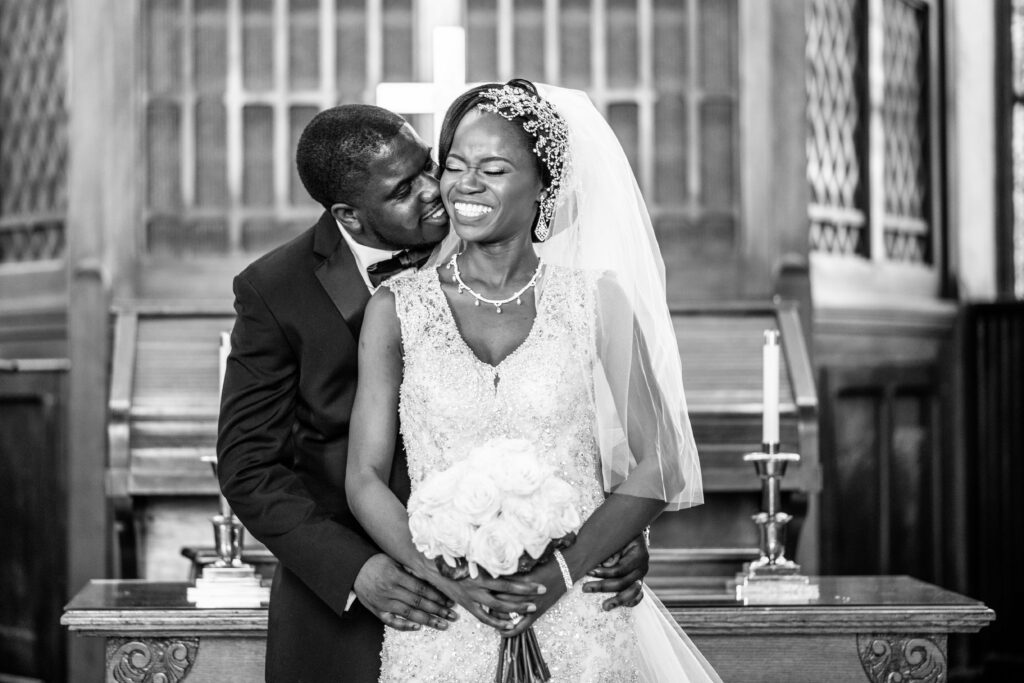
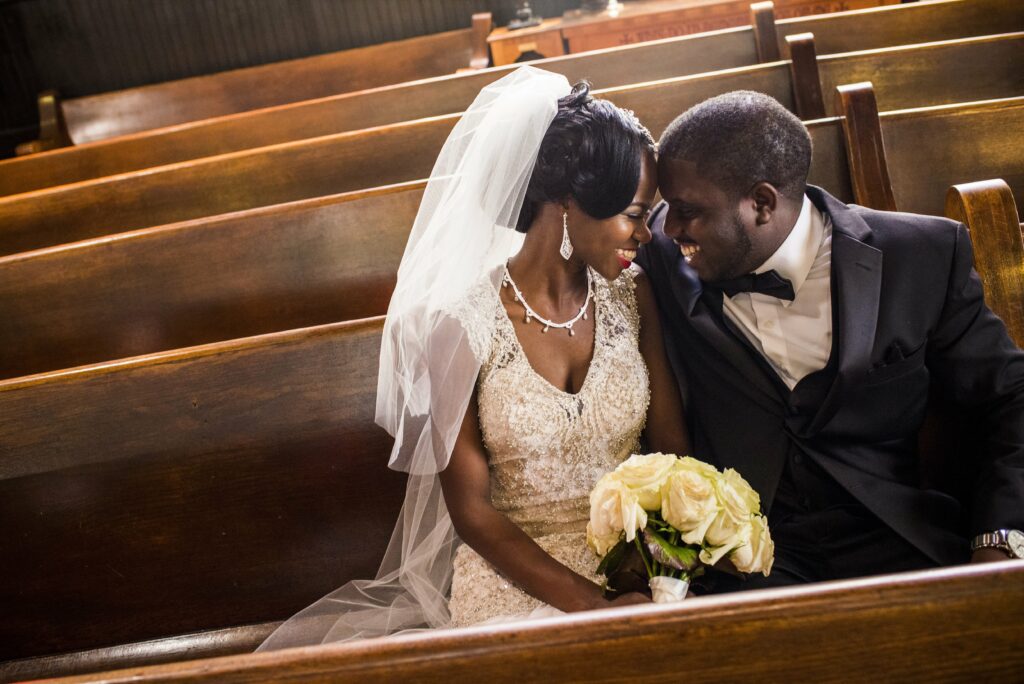
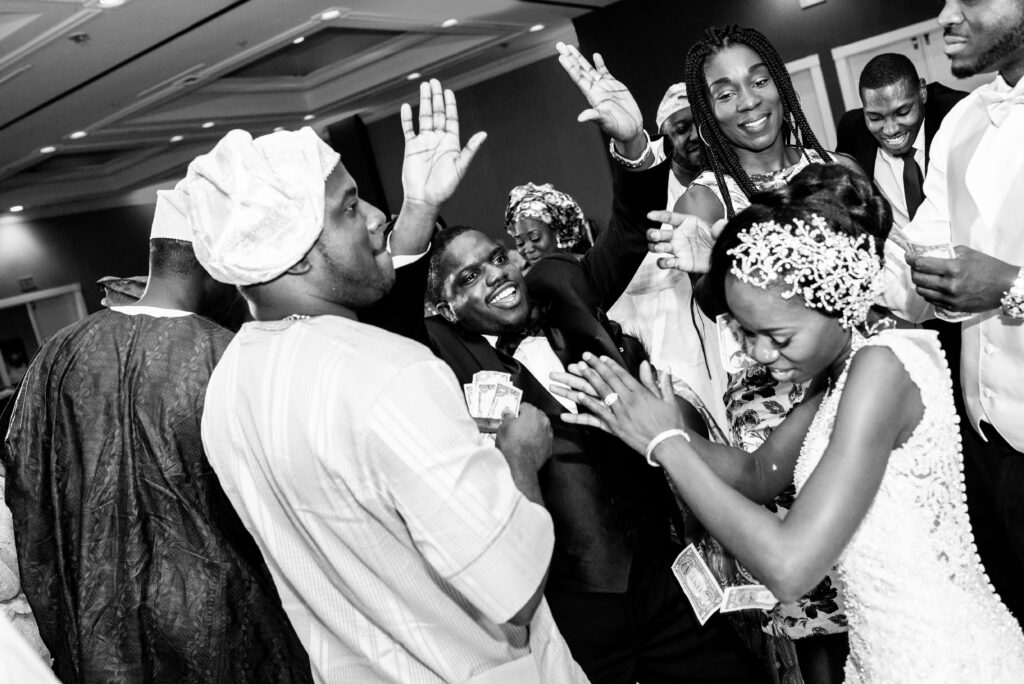
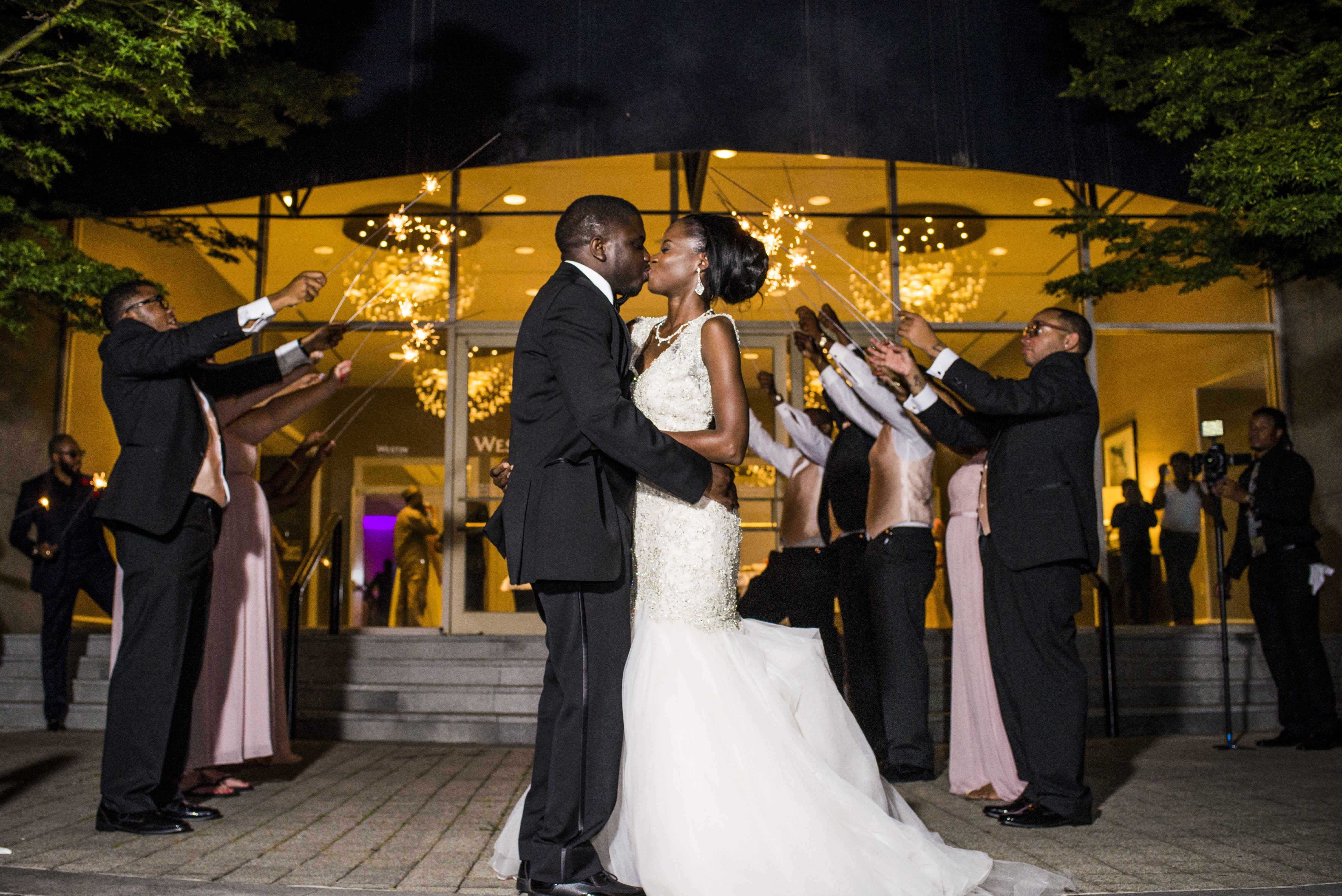
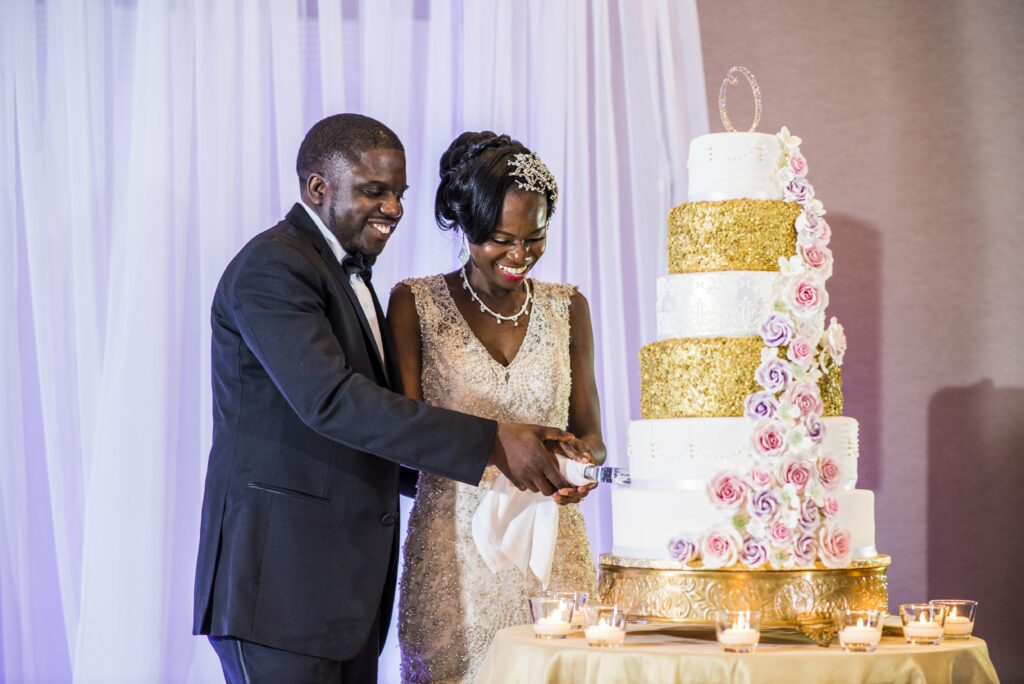
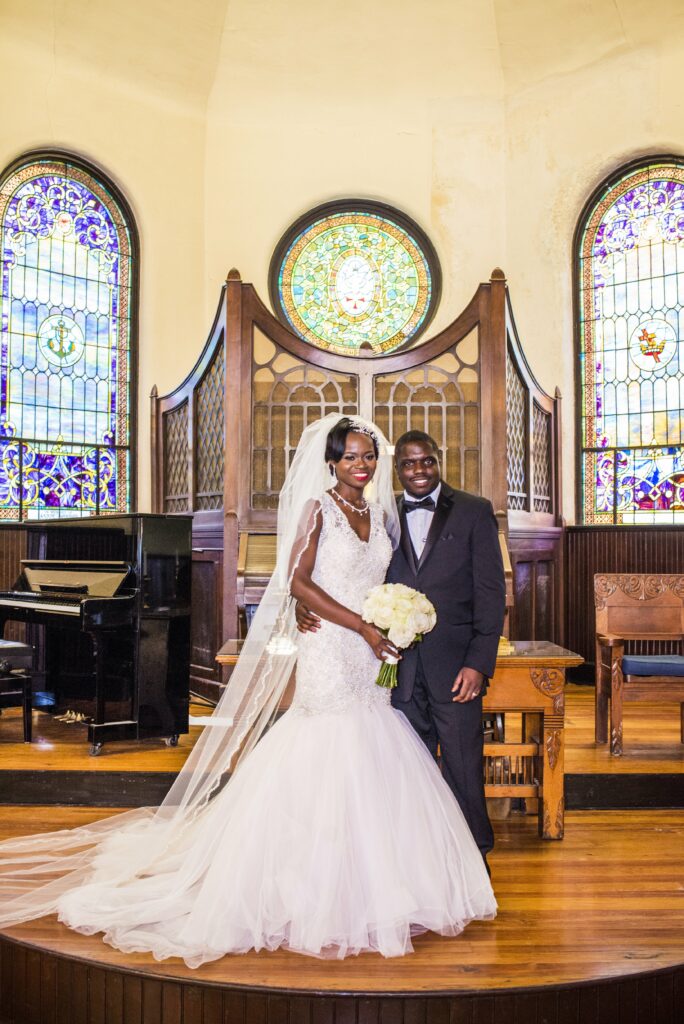
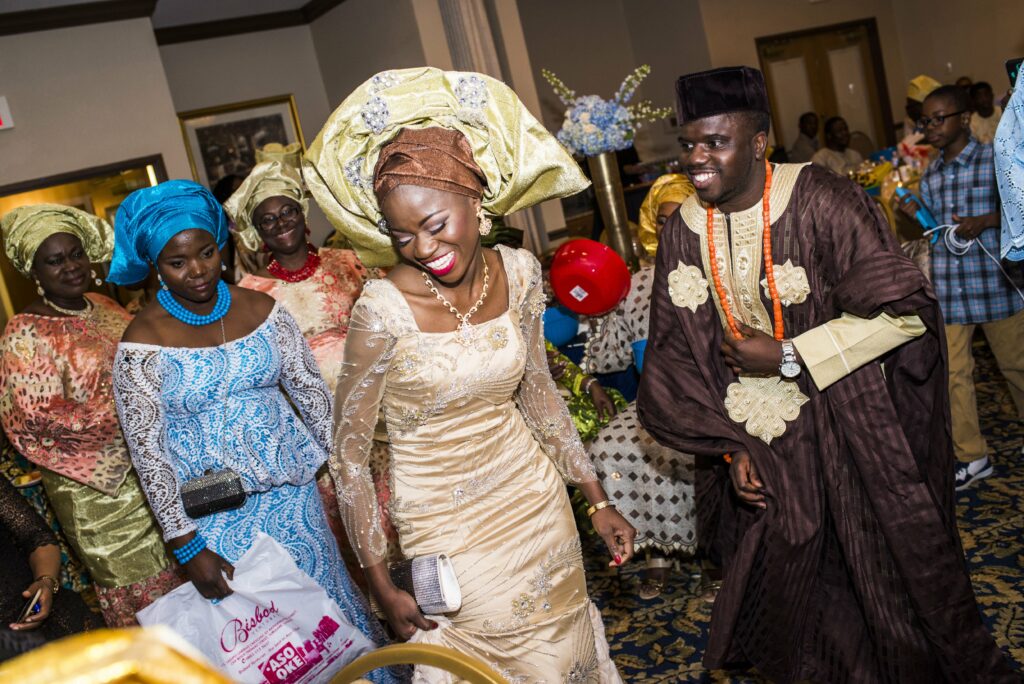
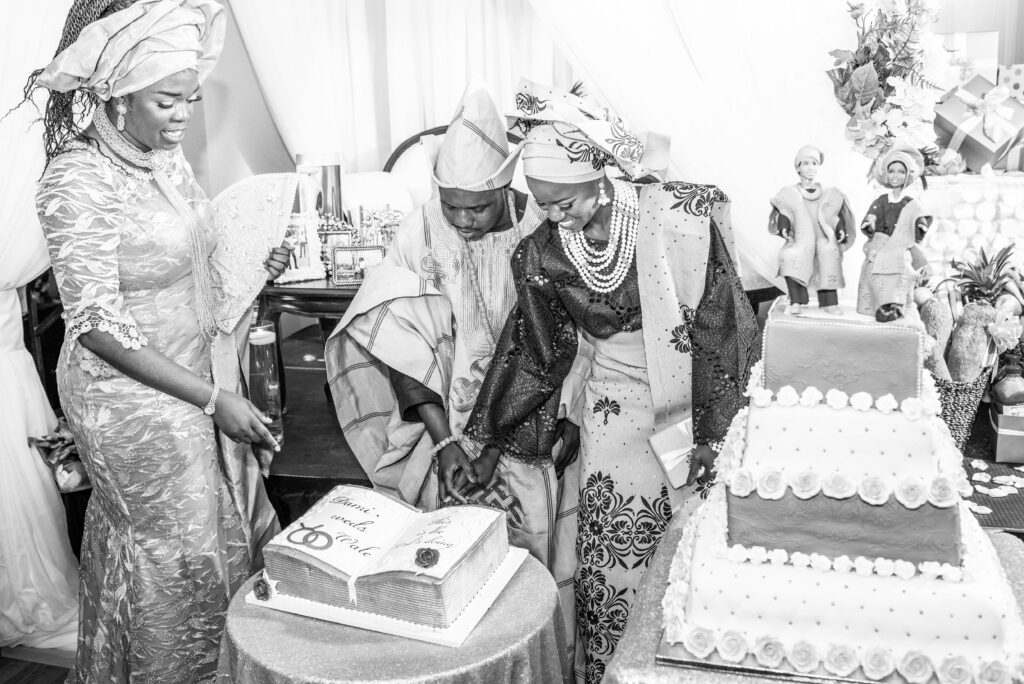
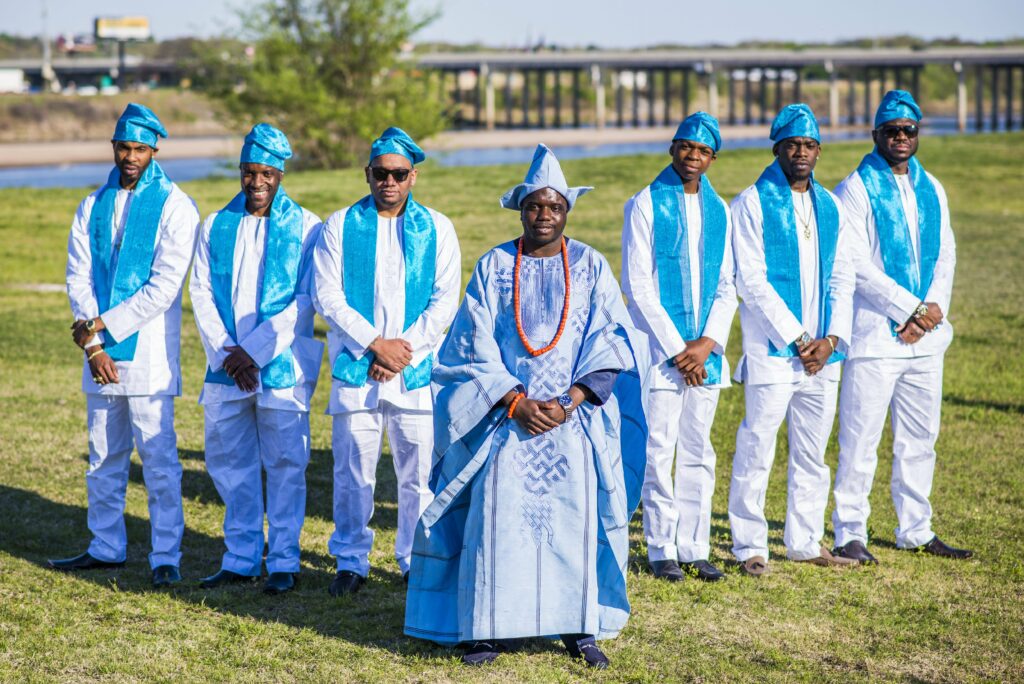
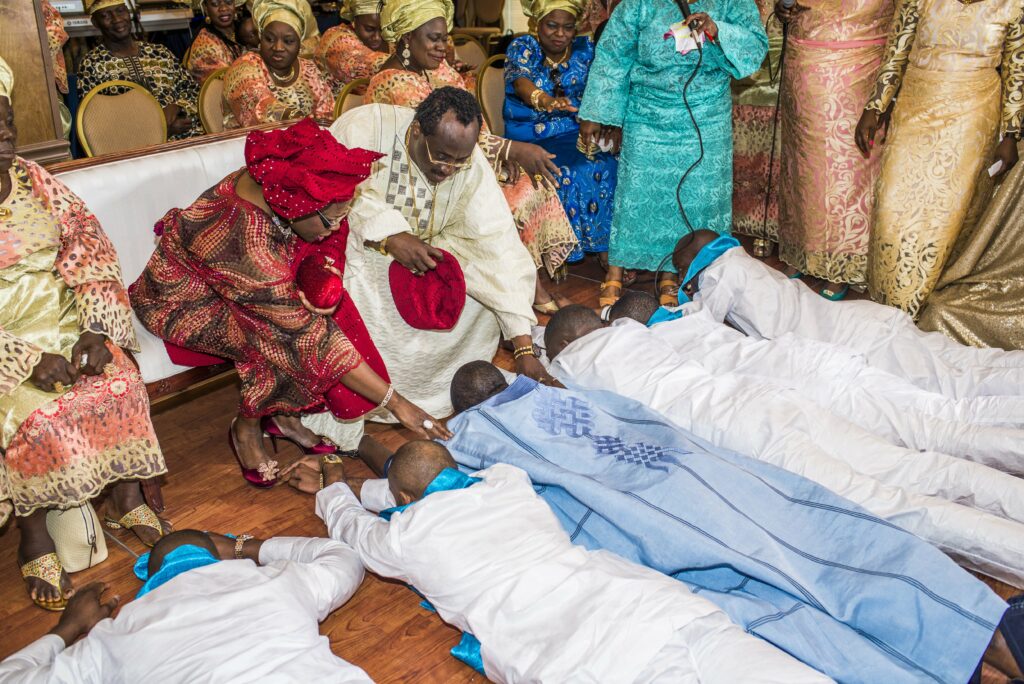
Family Considerations
The first question you likely have is, “can we actually have both weddings on the same day?” The short answer is yes, as long as key family members are on board and the timeline is carefully curated. We have successfully executed a few “two in one” day weddings and, although it’s a very long day, it’s absolutely possible.
Over the past few years, the desire to have both the traditional Nigerian wedding and the American wedding on the same day has grown in popularity, especially for our multicultural couples. But before deciding between a one-day or two-day celebration, engaging in open conversations with parents is essential. Understanding their wishes ensures that cultural and familial expectations are weighed during the decision-making process.
Although we both know that your wedding is a day to celebrate you two as a couple, family (especially Nigerian parents), view the traditional wedding as “their wedding day”. This is a time for them to show off to their older guests and be in the spotlight as well. So, they have a vested interest in how the traditional wedding is executed and presented.
When you have both weddings in one day, you have stricter time constraints (we recommend a max of 2 hours) and then, after a reset period, we transition to the American ceremony and reception. There is no “Nigerian time”. Everything has to run based on the timeline.
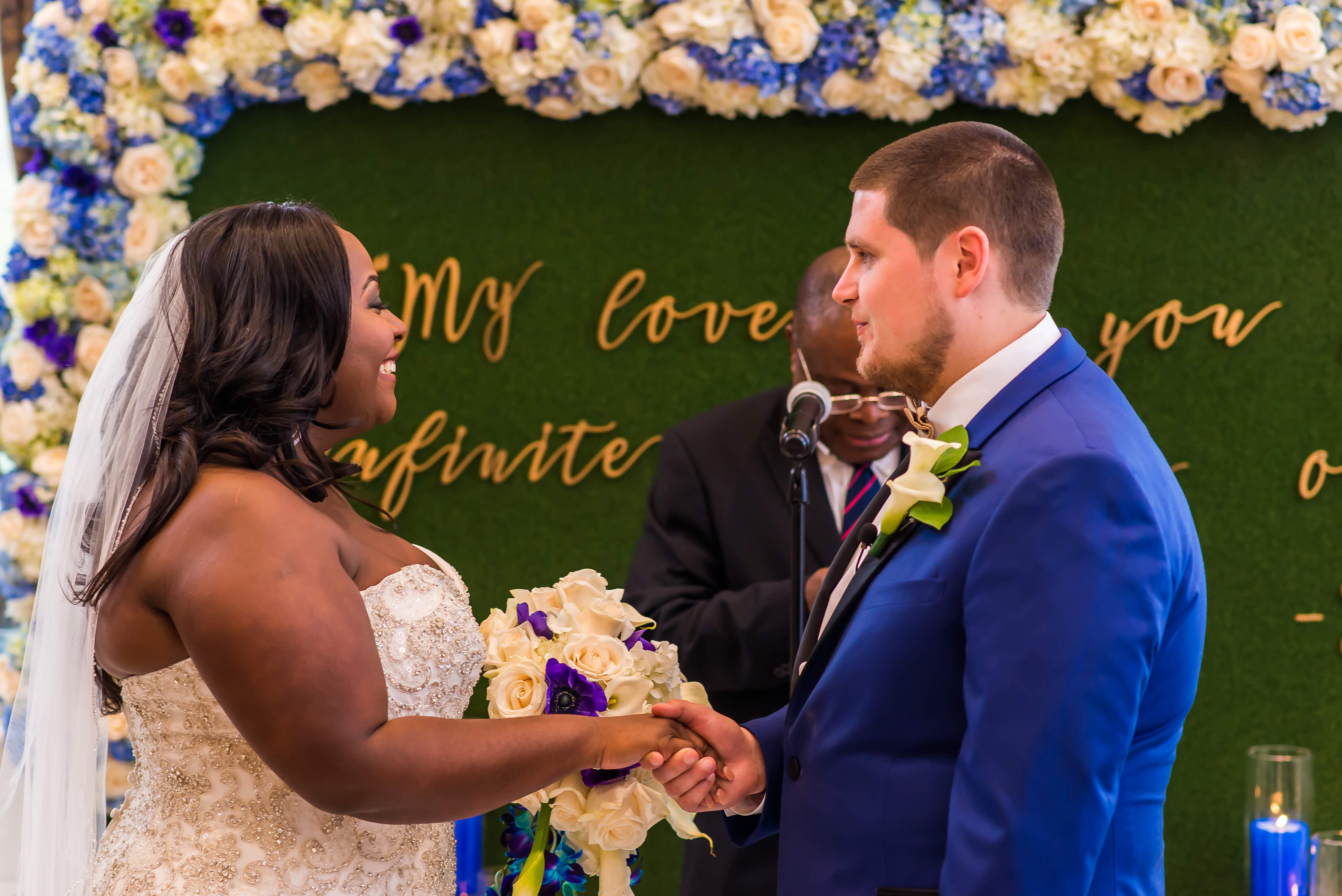
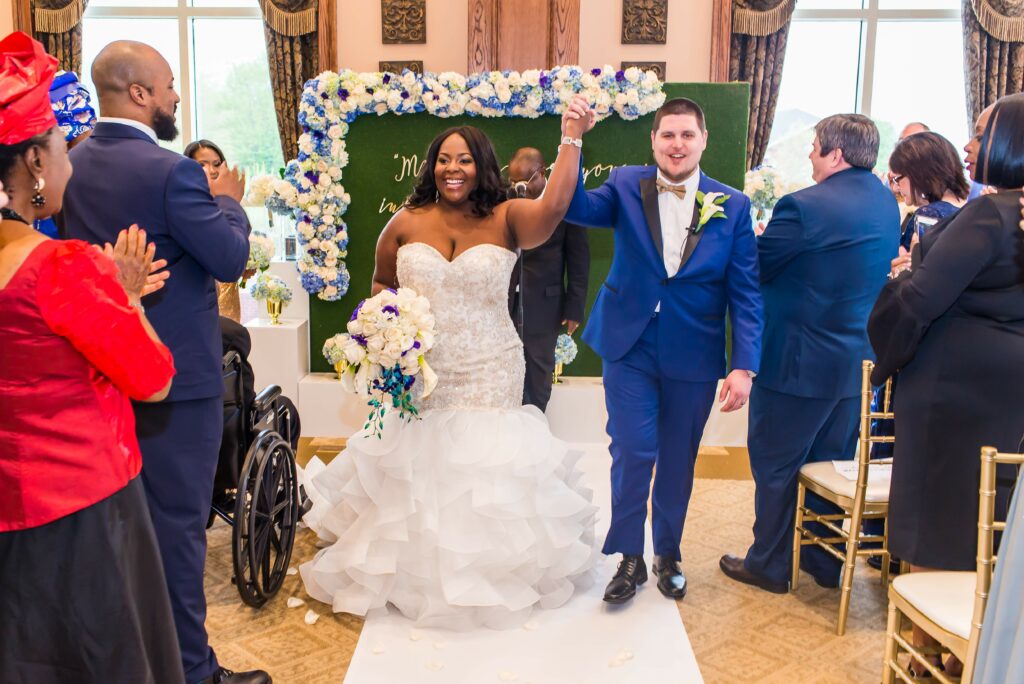
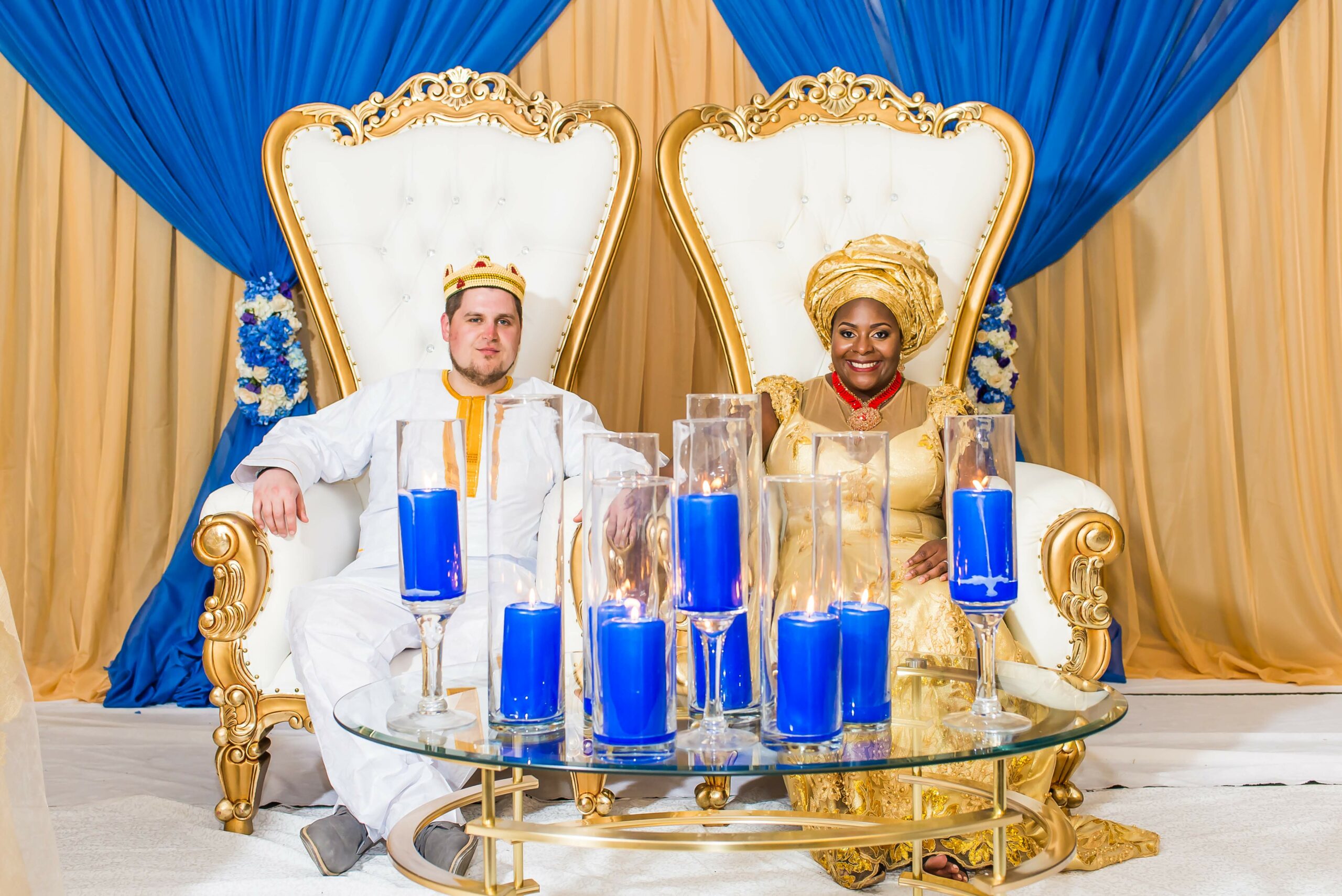
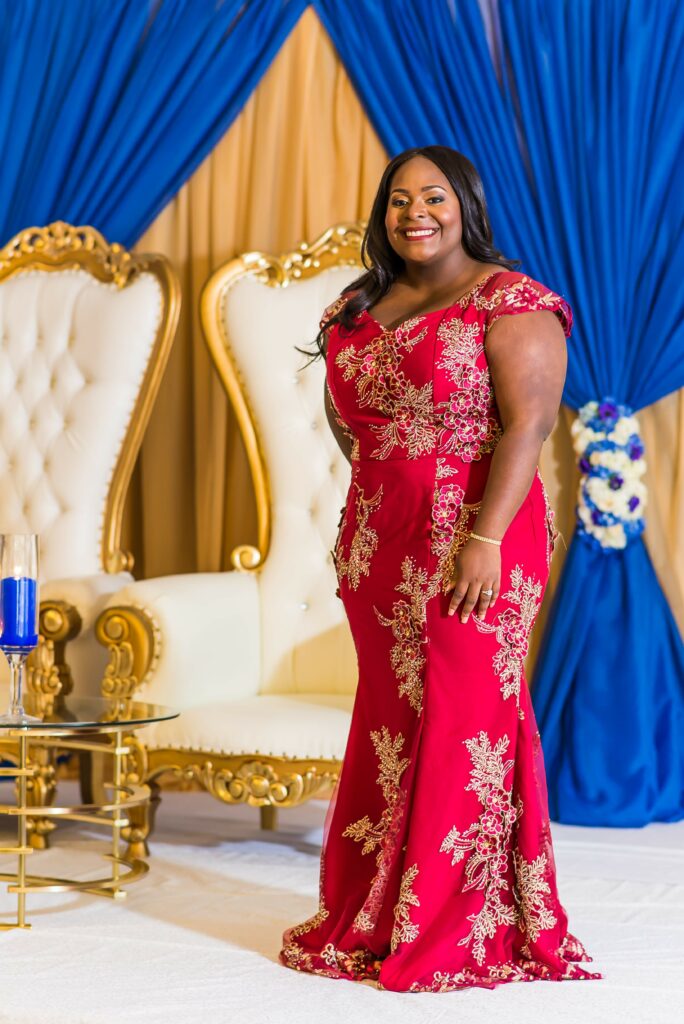
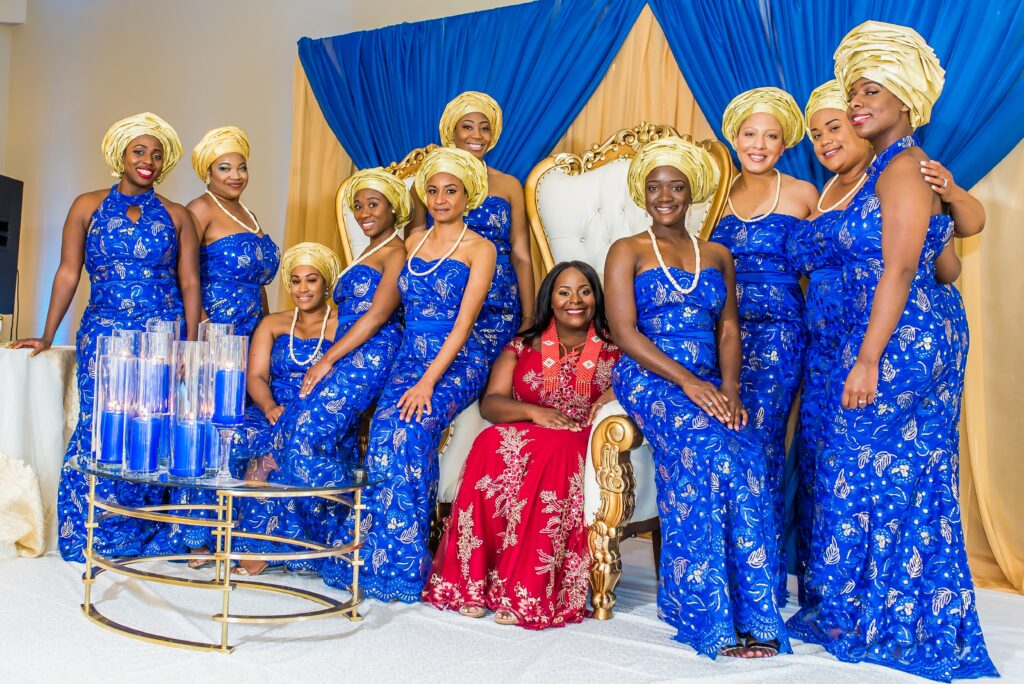
The Option of a One-Day Wedding
Hosting both ceremonies in a single day is a grand affair, but it comes with key things to consider. Read through a couple of key advantages and disadvantages of a one-day wedding.
- Advantages:
- Maximizing Time Off of Work: If you or the majority of your guests cannot take a lot of time off of work, knocking everything out in one day would prevent you from having to choose between having a traditional wedding or not.
- Cost Savings: Although having a one-day wedding vs. two-day wedding is not as inexpensive as people think, you do have cost savings due to not having to book vendors (photo, DJ, MC, etc.) for two separate days. We’ll touch on costs more below.
- Getting it Over With: We’ve worked with some clients who are very shy or introverted and prefer getting through both weddings in one day vs. two.
- Disadvantages:
- Gele and Makeup Start Times: Depending on how many entourage members/ bridesmaids you have, we normally have to begin makeup and gele tying at around 4 AM, even when we have multiple artists. I would strongly consider doing auto gele’s to assist with not having to get up too early.
- Timing for guests: There is a gap in festivities between the traditional wedding and American wedding so guests will have to occupy themselves during that time.
- Logistics: Condensing both festivities into one day can be logistically challenging, requiring meticulous planning for a smooth transition between the Nigerian and American wedding. There is no room for error and can only run well if you have a planner to execute a well throughout and realistic timeline.
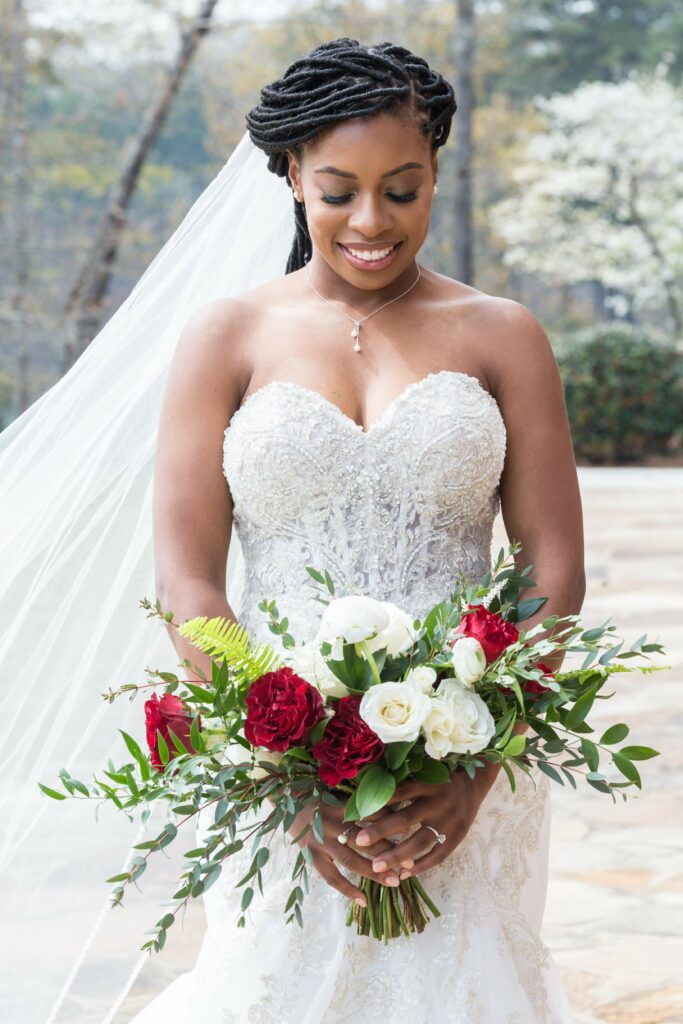
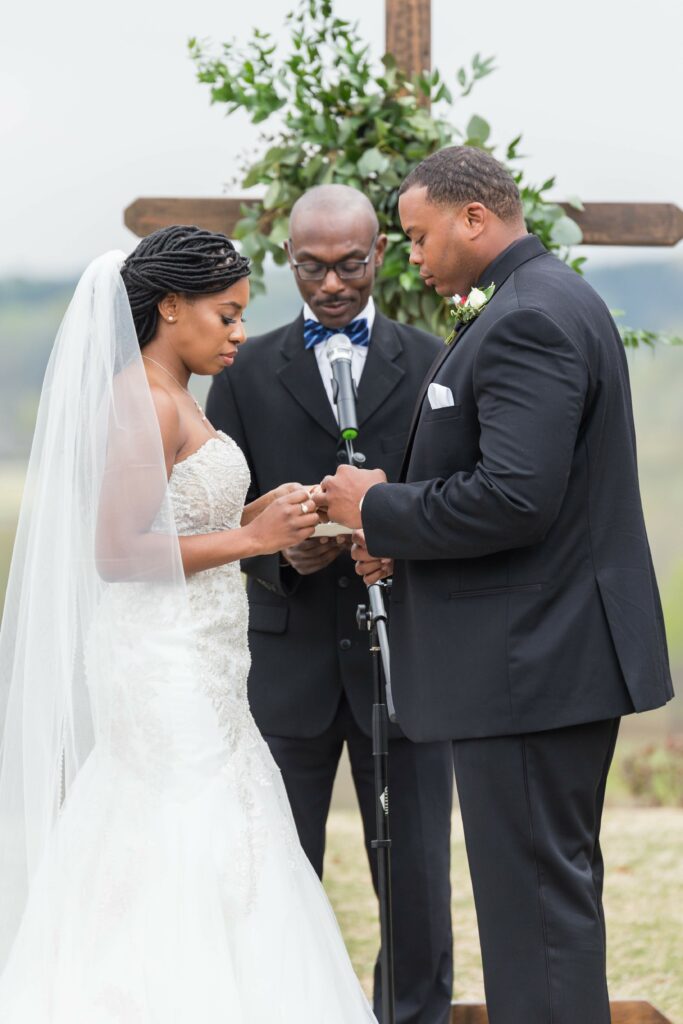
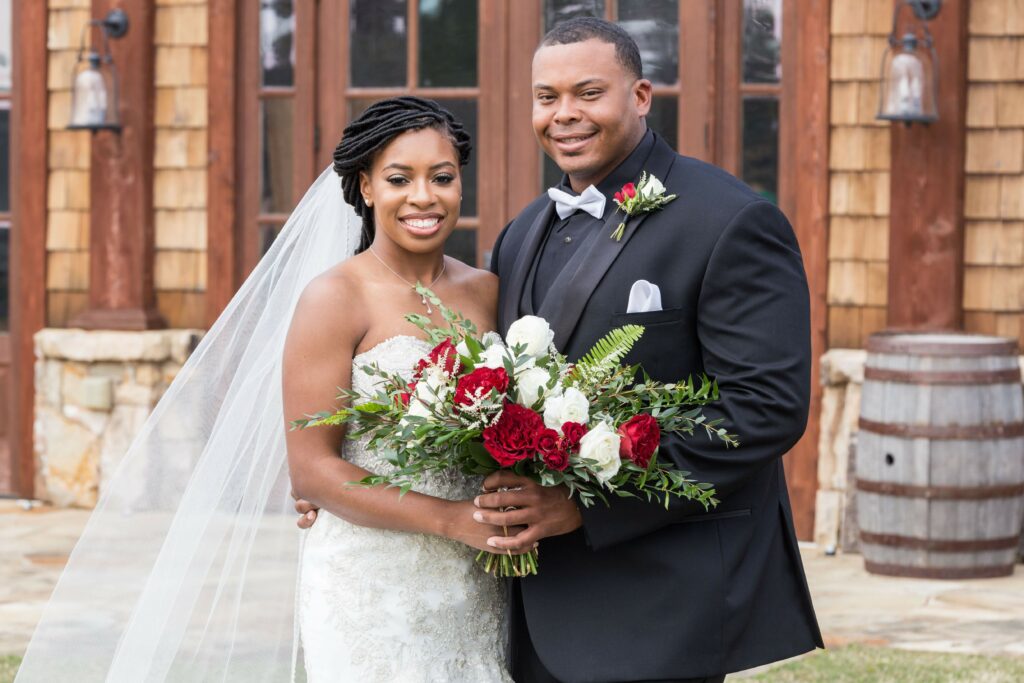
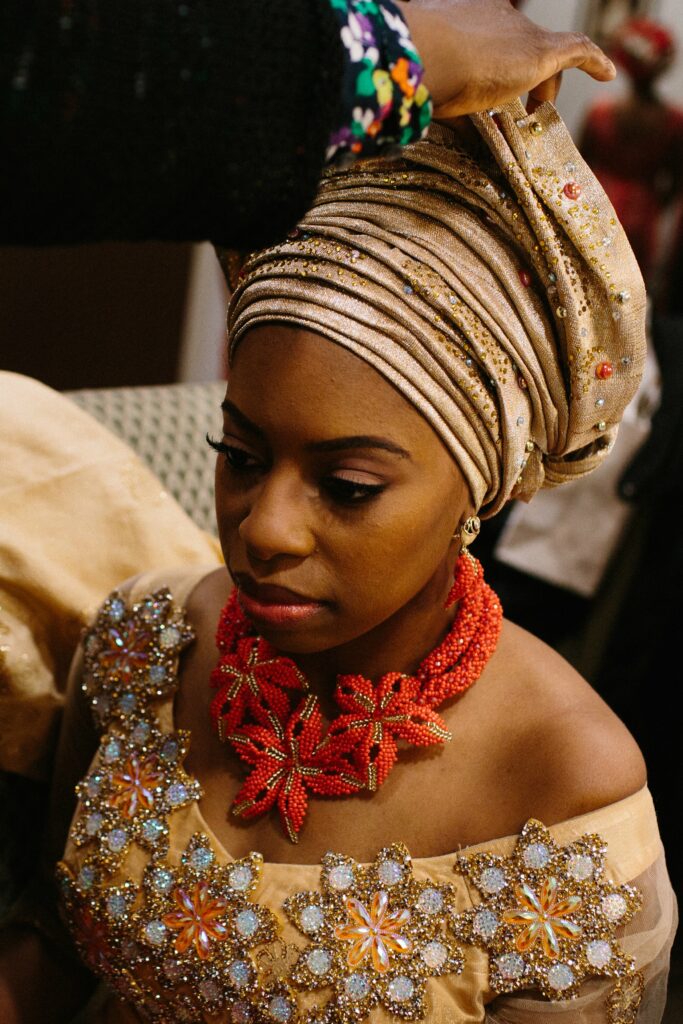
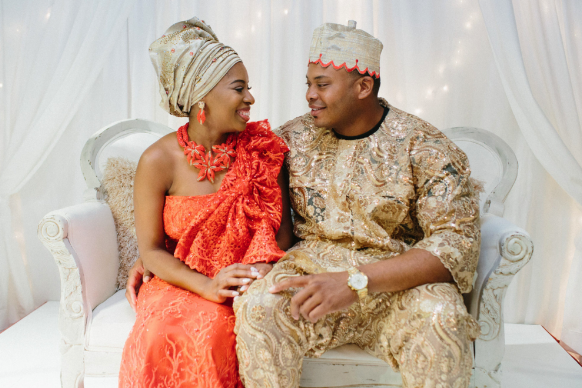
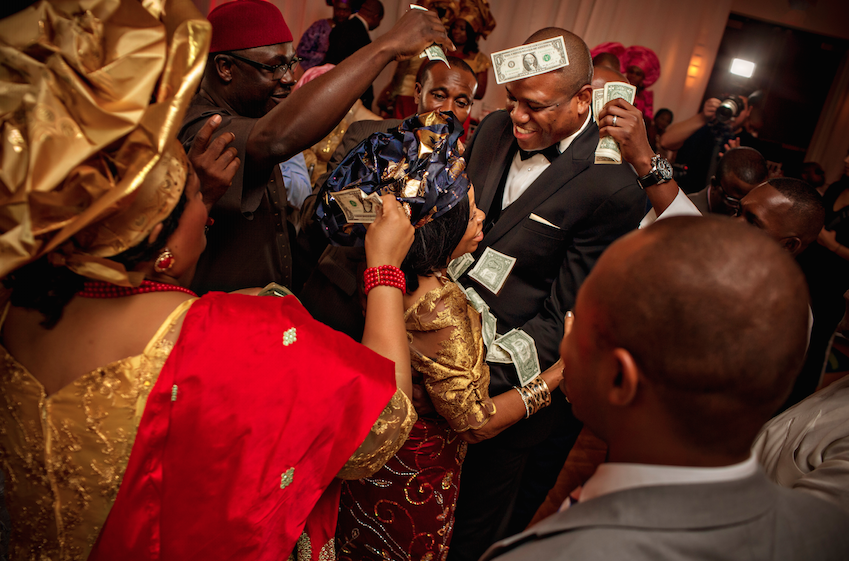
- Cost Considerations:
- Although you are saving money by condensing the wedding into one day, there are other line items that increase the standard costs of a one day wedding (e.g. number of photo/video and DJ hours). You will also have to feed your guests twice which is normally a lighter option for the traditional in the morning (e.g. a continental breakfast or small chops).
- An Example Timeline For a One Day Wedding:
- An example timeline for a one-day Nigerian-American wedding might involve a morning ceremony with traditional Nigerian rites, followed by an afternoon break and an evening American-style ceremony and reception.
- Here is an overview of a very condensed timeline we have done for previous clients to give you an idea:
- 10 AM – 12 NOON: Traditional Nigerian wedding
- 5 PM – 5:30 PM: American ceremony
- 5:30 PM – 6:30 PM: American Cocktail hour
- 6:30 PM – 11 PM: American Reception
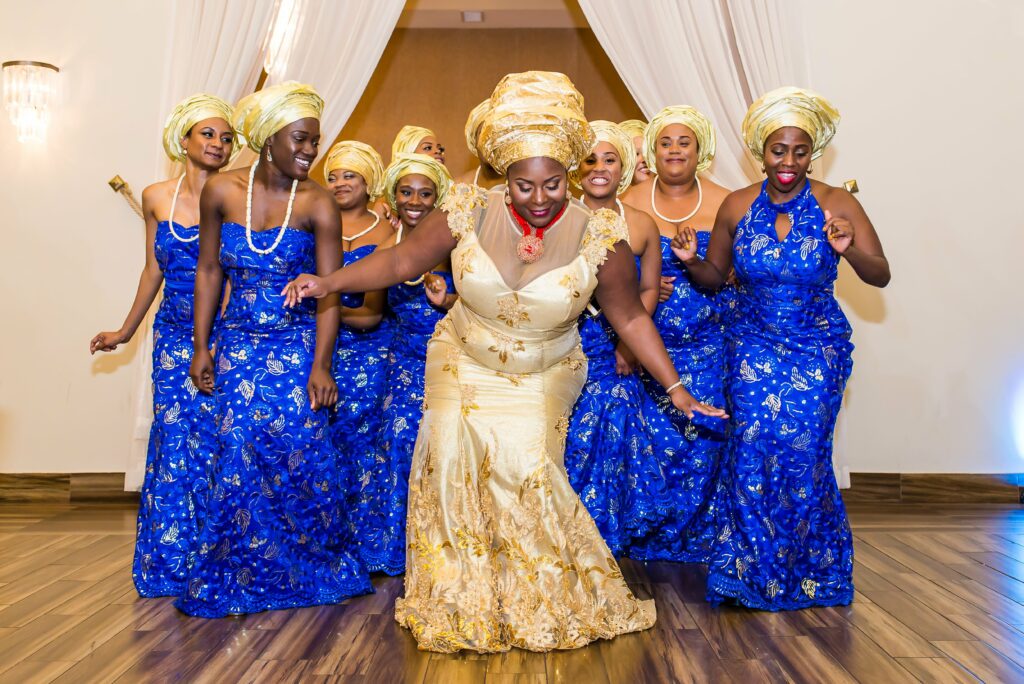
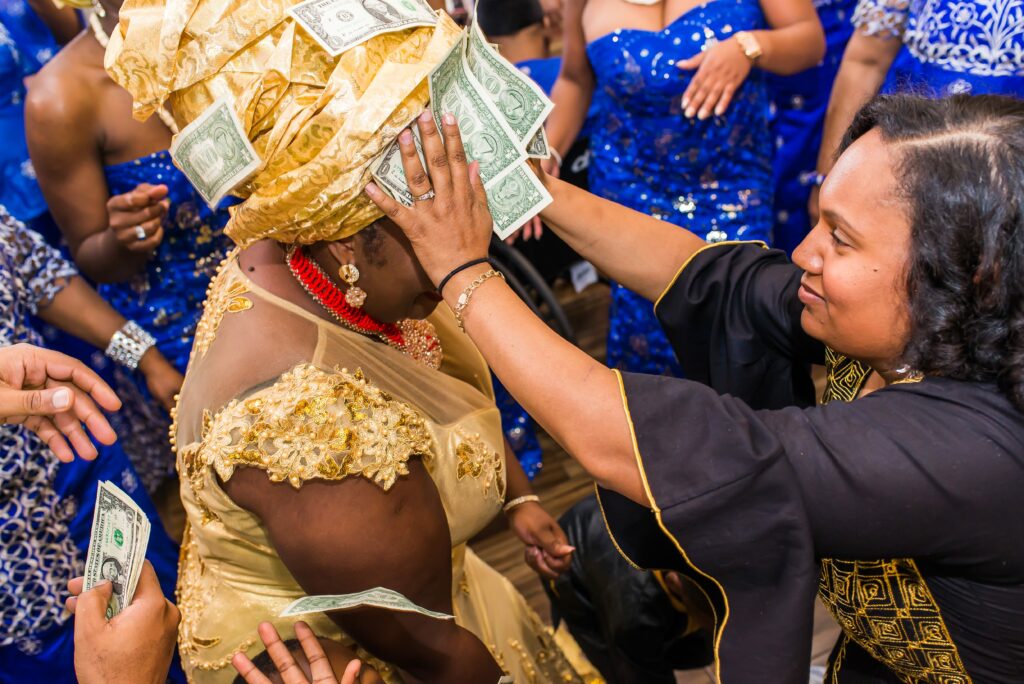
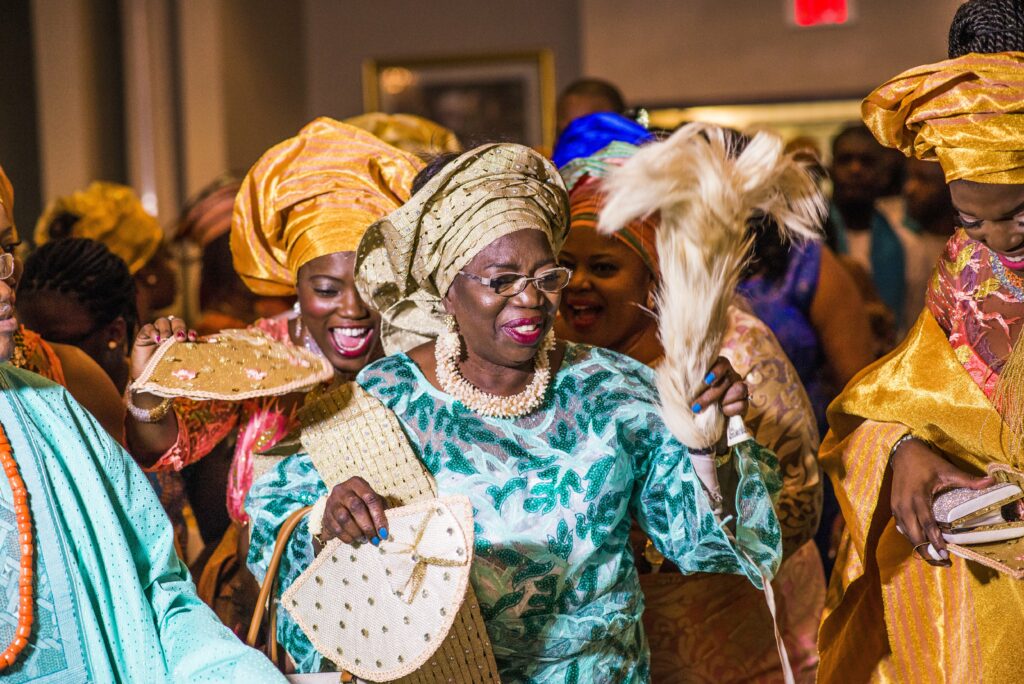
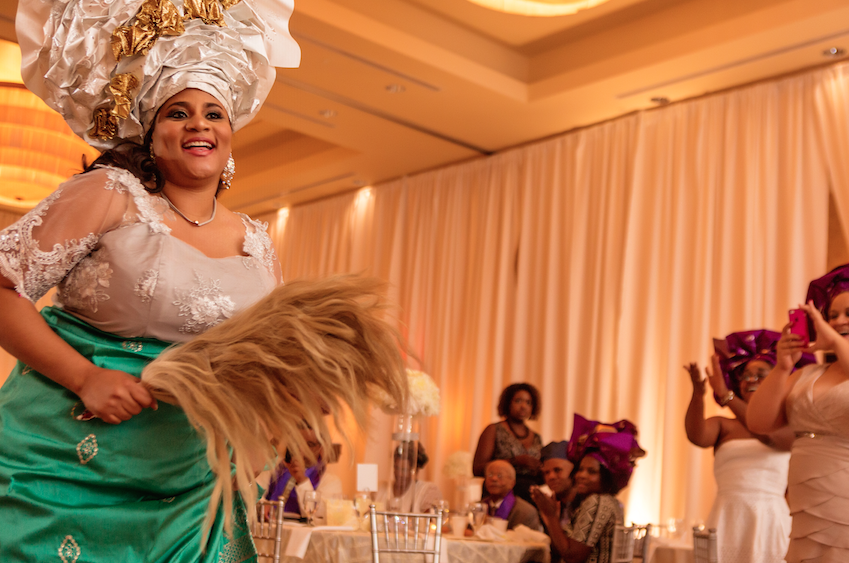
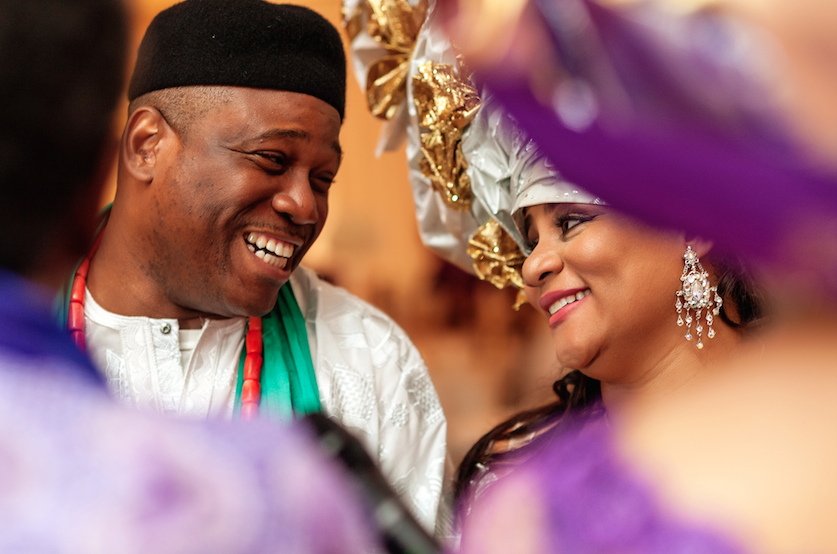
The Option of a One-Day Wedding
Spreading celebrations over two days offers a different experience, but it should be selected after evaluating key considerations. Read through a couple of key advantages and disadvantages of a two-day wedding.
- Advantages:
- The primary benefit of a two-day celebration includes the luxury of time, allowing for a more relaxed pace from getting ready to determining the start time of your ceremony.
- Disadvantages:
- The budget: A two-day wedding is more of an investment because you are paying for weddings on two separate days. While some vendors may offer a bundled package for two-day weddings, a two-day wedding is your most expensive option.
- Your energy levels: You’ll be tired. You’ll be “on” all day while also dancing and talking with your guests. After your traditional wedding, which normally ends at 11 pm or 12 am, you’ll have to wake up very early the next day. Save up all of your energy so you can power through both days while also having fun.
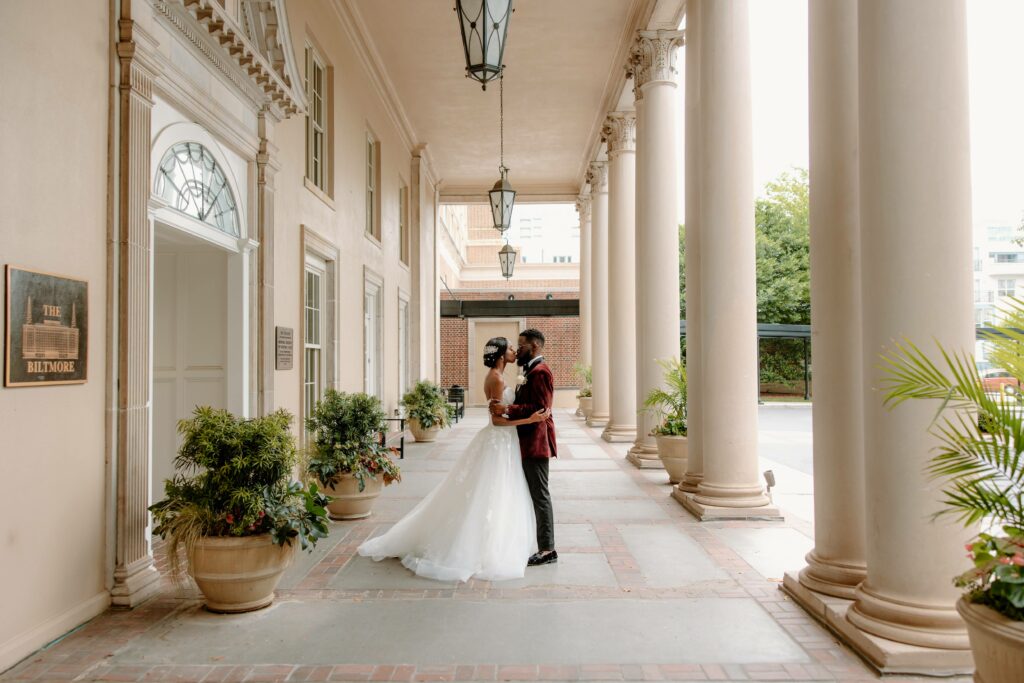
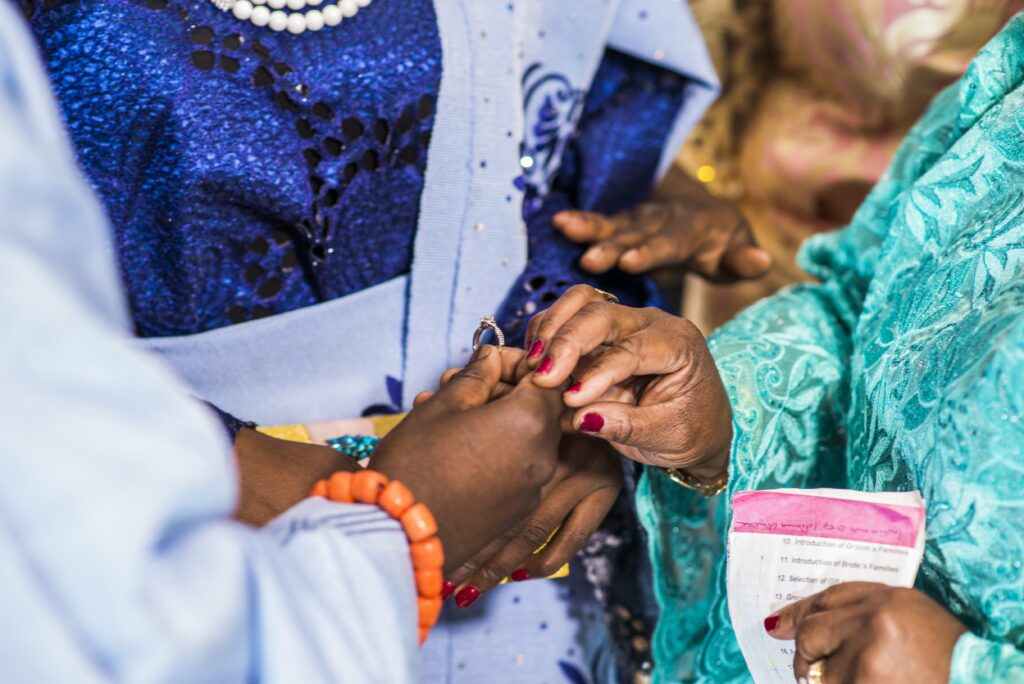
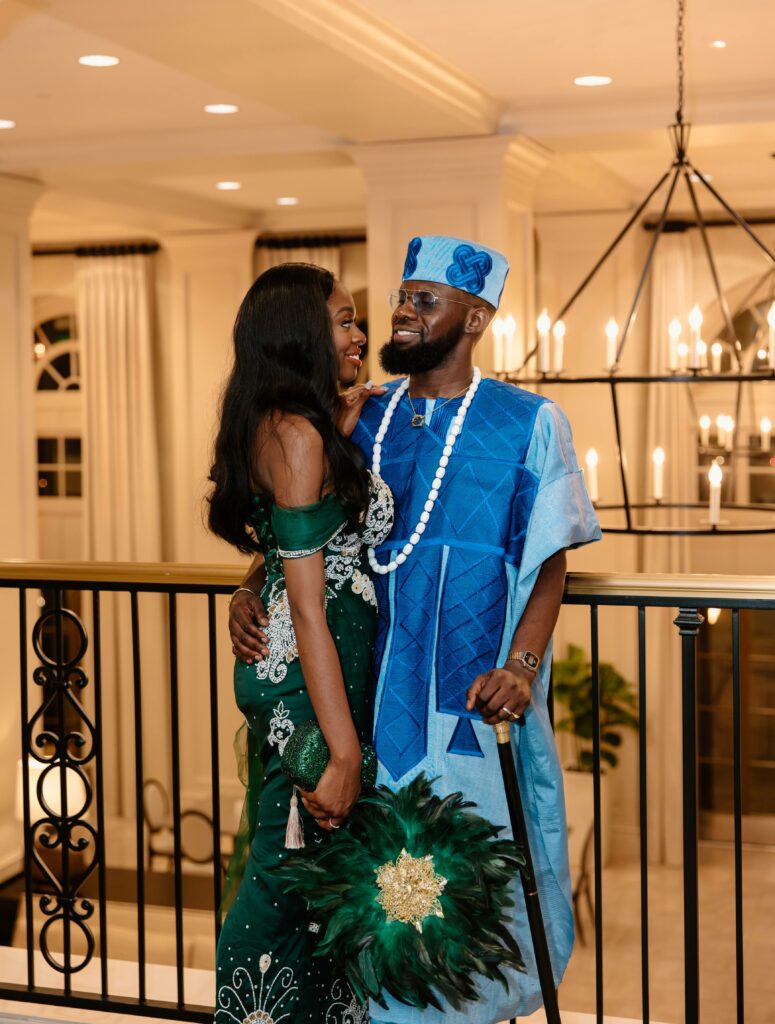
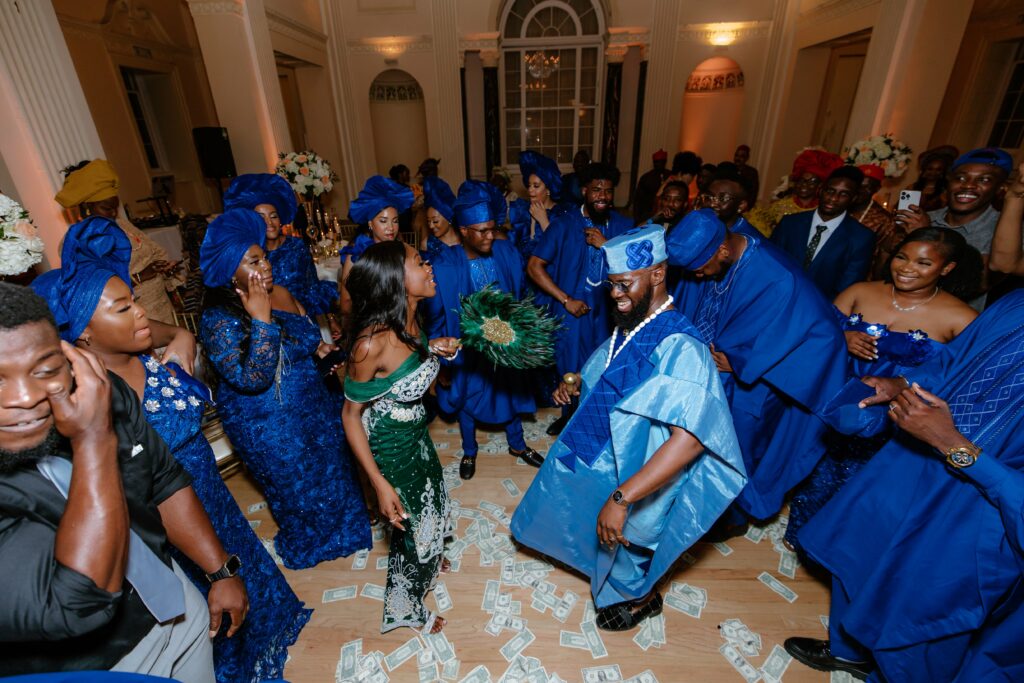
As couples stand at the crossroads between a one-day or two-day Nigerian-American wedding, several key factors should guide their decision-making. Consider the significance of cultural elements, the desired pace of celebration, and the financial implications of each option. The decision should align with the couple’s vision for their unique love story. While a one-day celebration might offer some cost savings, a two-day affair provides a more expansive canvas for cultural exploration. Reflect on how each option resonates with you. Whether it’s the intensity and vibrancy of a one-day celebration or the leisurely exploration of traditions over two days, the chosen format should reflect your shared journey.
Read this blog on how we plan and execute beautiful Nigerian and multicultural weddings as well as common pitfalls of Nigerian and multicultural weddings.
